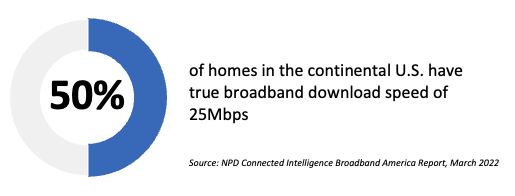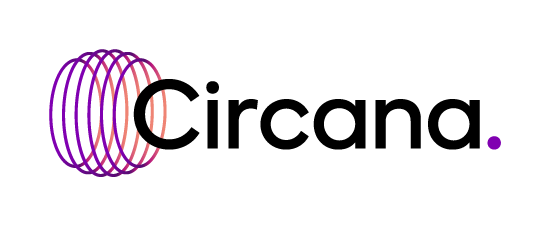
The new iPhone SE goes 5G
Apple last week announced the much-awaited update to its budget SE model. As expected, the new SE borrows the same chassis used on the 2020 SE phone, which was built on the five generation old iPhone 8 (featuring a 4.7-inch display and the classic home button). The under-the-hood design, on the other hand, is drastically improved as the new SE boasts Apple’s latest A15 bionic chip as well as 5G. Incidentally, the 5G support is limited to sub-6 GHz spectrum, meaning the phone is not tuned to run on the ultra-fast mmWave 5G networks. The new SE will come in three color variants and three storage options (64 GB, 128 GB and 256 GB) with a starting price of $429 (the 64GB version). Pre-orders for the new SE began last Friday with the commercial shipments beginning on March 18th.
The NPD Take:
- The affordable iPhone SE line is generally all about extending Apple’s reach into new households, thus expanding its ecosystem. The new SE 2022, on the hand, is also tasked with a side mission of upgrading price-sensitive iPhone customers (as well as Android switchers) to 5G as it is the only iPhone option delivering 5G connectivity under $500. Incidentally, while the lack of mmWave 5G support is not ideal, it is a tolerable omittance considering the additional costs, limited coverage and more importantly, lack of tangible consumer benefits for ultra-high-speed connectivity at this price segment.
- The $429 price tag on the 64 GB version of the phone is $30 more than that of the SE 2020. While the upgraded device specs (such as the A15 silicon, improved glass and camera and the Qualcomm-made 5G radio), as well as the general rise in production and logistics costs, perfectly justify Apple’s decision to mark up the new SE. But Apple must also be banking on its carrier partners’ motivation in upgrading their customers using older 4G handsets to the cost- and bandwidth-effective 5G networks.
- Tracfone’s $299 deal ($130 discount) on the new SE 2022 is interesting as the promotion also includes six months of free service on the 2GB plan that regularly priced at $25 per month. This is a good move by Tracfone, whose device unlocking policy is now tied to parent Verizon’s FCC-enforced policy that automatically unlocks the iPhones within 60 days of activation. Such promotions coupled by competitive responses by other carriers should help Apple boost its volume share in the national retail space (especially within Walmart) in the coming months.
T-Mobile brings 5G FWA to Metro stores
T-Mobile last week announced the commercial availability of its 5G Home Internet service for Metro by T-Mobile customers nationwide. T-Mobile claims that its 5G Home Internet service is available to over 30 million homes nationwide. Metro’s prepaid home internet service requires the purchase of its FWA (Fixed Wireless Access) modem/gateway for a one-time fee of $99 and a $50 monthly access fee for unlimited and unthrottled data access at home.
The NPD Take:
- According to NPD’s new Broadband America report, only 50% of homes in the continental U.S. have true broadband download speed of 25Mbps whereas T-Mobile’s 5G FWA solution promises consistent three-digit downloads speeds in the areas it provides coverage. The speed advantage coupled by the attractive monthly cost (with respect to fixed broadband solutions from cable rivals) should help T-Mobile grow its FWA base fast.
- T-Mobile offers the same solution to its postpaid customers who are not required the make the one-time payment fee of $99 for the modem as they go through credit checks. The modem fee may be a distractor, but it will serve as a contract reducing churn in this high-churn environment.


